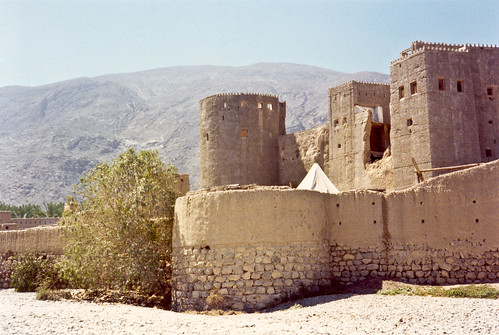Assalam 'Alaikum Warahmatullahi Wabarakatuh
It was narrated that ‘Abd-Allaah ibn ‘Abbaas said: Salmaan al-Faarisi told me his story from his own lips. He said:
It was narrated that ‘Abd-Allaah ibn ‘Abbaas said: Salmaan al-Faarisi told me his story from his own lips. He said:
I was a Persian man, one of the people of Isbahaan, from a village thereof called Jayy. My father was the chieftain of his village, and I was the dearest of Allaah’s creation to him. He loved me so much that he kept me in his house near the fire, as girls are kept in. I strove hard in the Magian religion until I became the keeper of the fire, which I tended and did not let go out for a moment.
My father had a huge garden, and he was busy one day with some construction work, so he said: “O my son, I am too busy with this building today, go and check my garden,” and he told me some of the things he wanted done. I went out, heading towards his garden, and I passed by one of the Christian churches, where I could hear their voices as they were praying. I did not know anything about the people because my father had kept me in his house. When I passed by and heard their voices, I entered upon them to see what they were doing. When I saw them, I was impressed with their prayer and I was attracted to their way.
I said: By Allaah, this is better than the religion that we follow. By Allaah, I did not leave them until the sun set, and I forgot about my father’s garden and did not go there.
I said to them: Where did this religion originate?
They said: In Syria.
Then I went back to my father, who had sent people out to look for me, and I had distracted him from all his work.
When I came to him, he said: O my son, where were you? Did I not ask you to do what I asked?
My father had a huge garden, and he was busy one day with some construction work, so he said: “O my son, I am too busy with this building today, go and check my garden,” and he told me some of the things he wanted done. I went out, heading towards his garden, and I passed by one of the Christian churches, where I could hear their voices as they were praying. I did not know anything about the people because my father had kept me in his house. When I passed by and heard their voices, I entered upon them to see what they were doing. When I saw them, I was impressed with their prayer and I was attracted to their way.
I said: By Allaah, this is better than the religion that we follow. By Allaah, I did not leave them until the sun set, and I forgot about my father’s garden and did not go there.
I said to them: Where did this religion originate?
They said: In Syria.
Then I went back to my father, who had sent people out to look for me, and I had distracted him from all his work.
When I came to him, he said: O my son, where were you? Did I not ask you to do what I asked?






